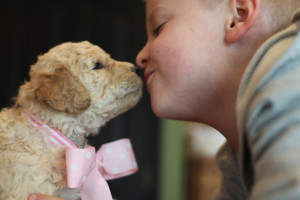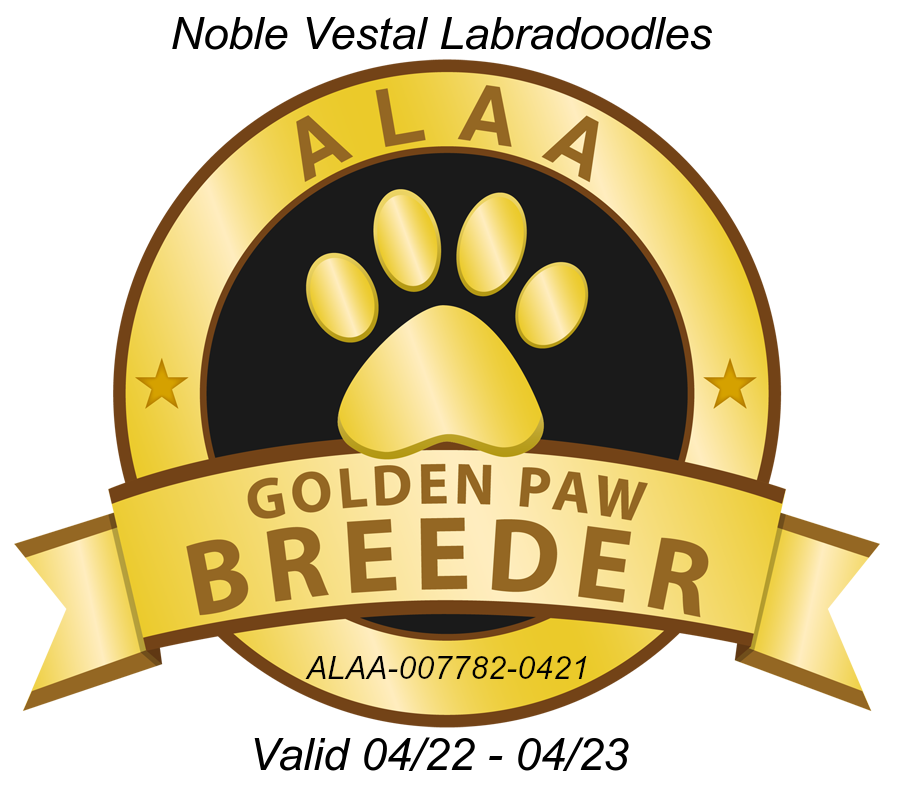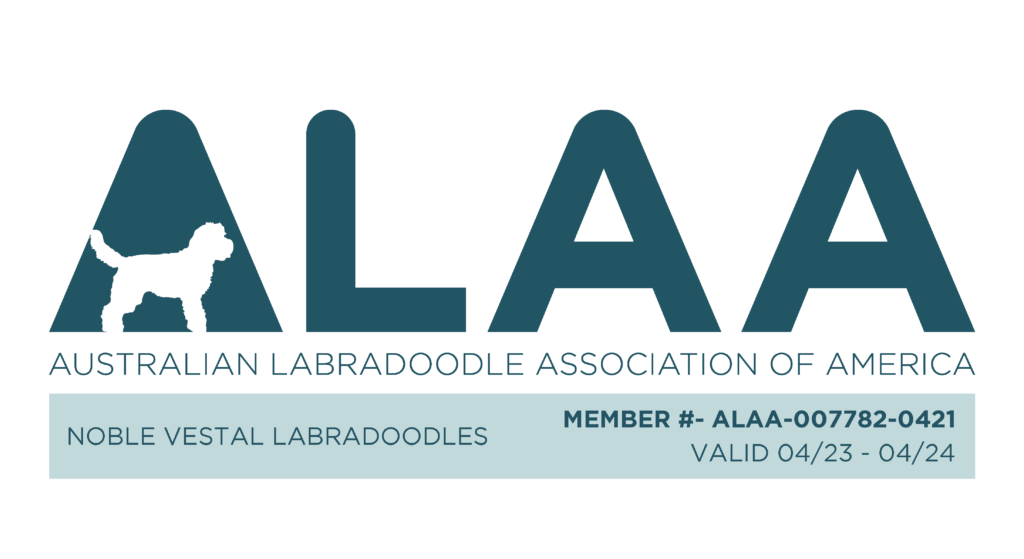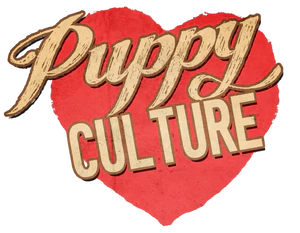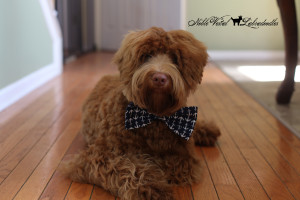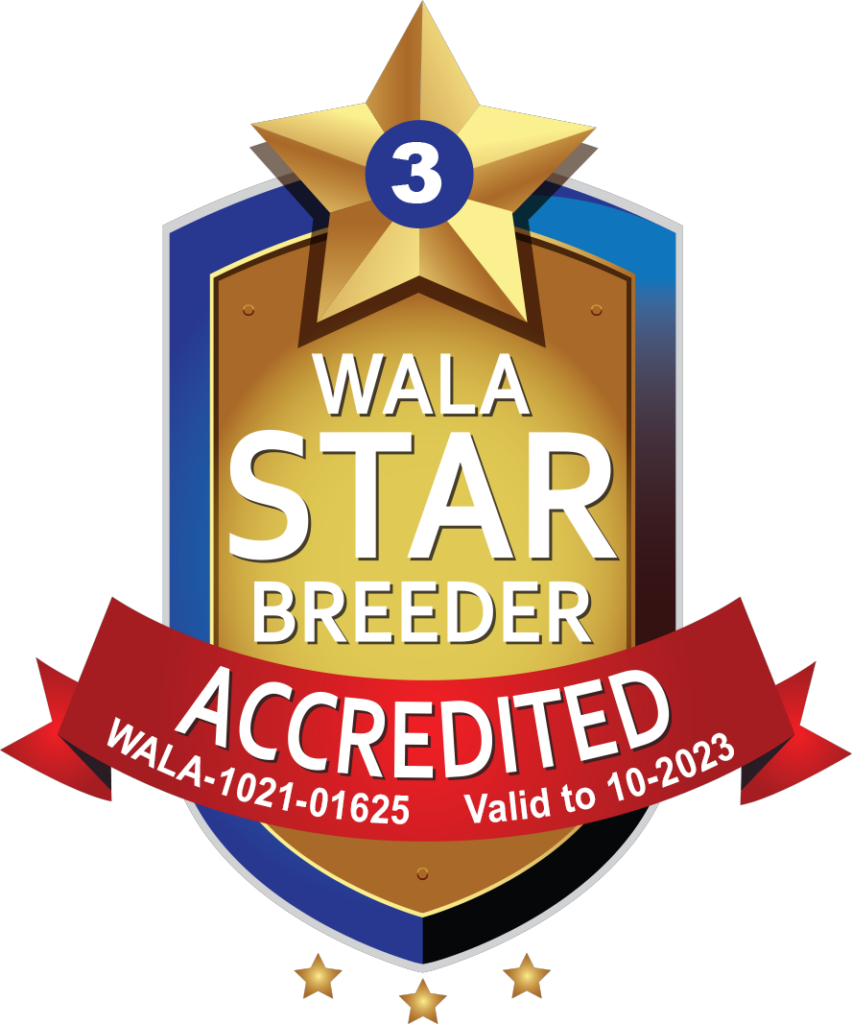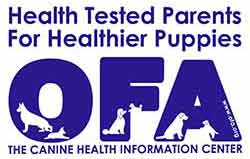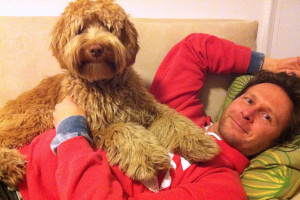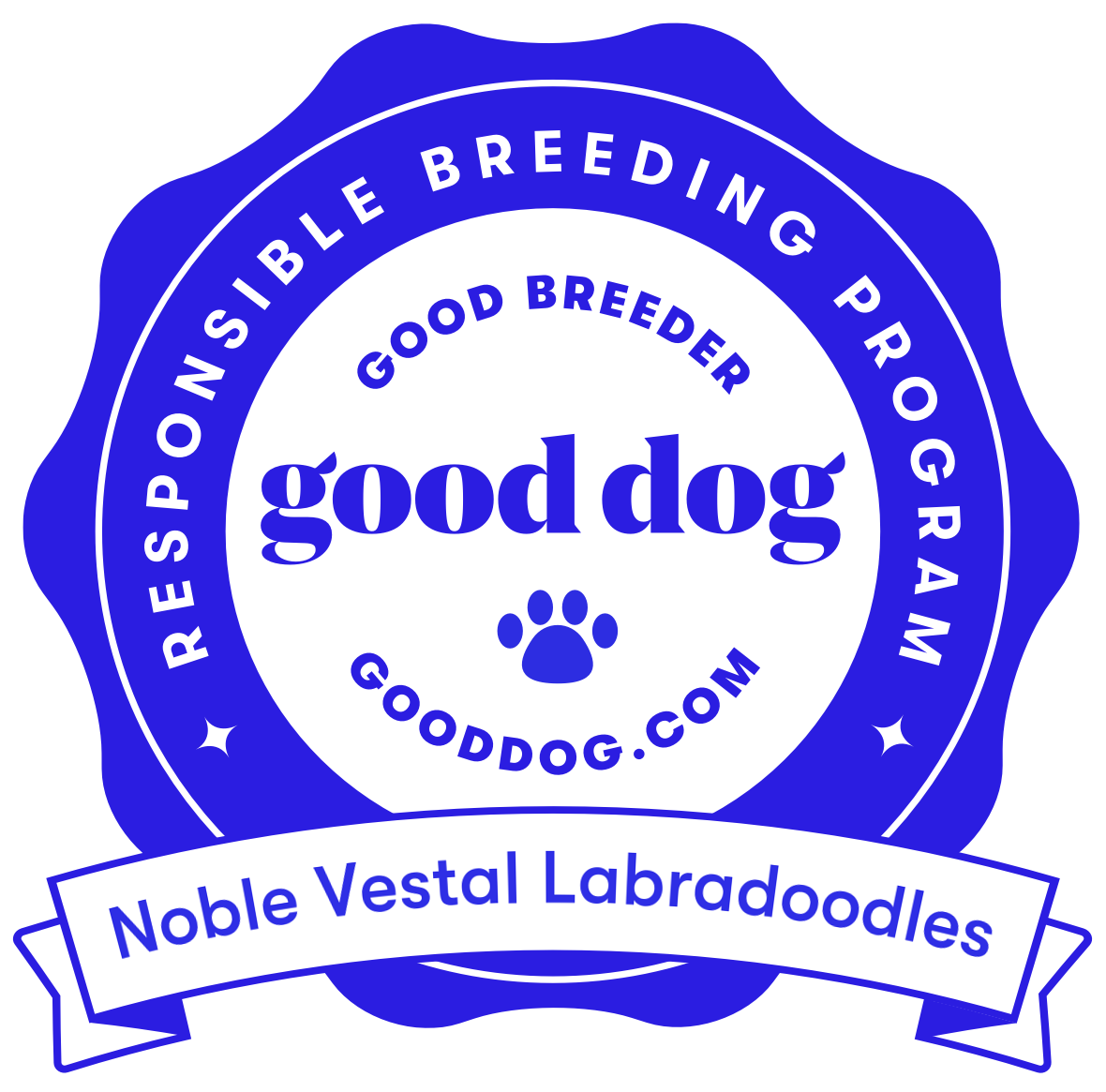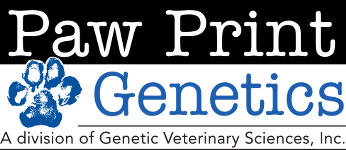Development stages of your dog |
Age |
Learning & Development |
What to do now |
Veterinarian Care* |
Neonatal |
Birth to 12 days | Learning Begins. Puppy can’t see at all and he doesn’t hear well. Mostly immobile, he stays very close to mother and litter mates |
We provide warm environment.Early stress is beneficial – we handle the puppies daily. This helps the puppy handle stress more easily later in life. Puppy’s rate of mental development will quickly depend on how complex their environment is. You have approximately 12 weeks to find a well run Puppy Class. Classes fill quickly, so it is prudent to have your enrollment reserved in advance. | Our vet checks our puppies when they are three days old to rule out birth defects. At this time our puppies are also micro chipped for identification and monitoring. |
Transition Period |
13 to 20 days | Eyes open, puppy can hear, begins to walk in a wobbly fashion. By the end of this period the puppy stats to eliminate spontaneously with out help from their mom. The puppy starts to take in solid food. The mother may regurgitate food to the pups. | We start to change their environment by adding balls of various sizes, blankets with different textures and other toys. Visitors are limited to our large family and friends. | None is needed as long as puppies are thriving. |
Primary Socialization Period |
3 to 7 weeks | The sense of vision begins to develop; adults vision is reached at about 8 weeks of age. Puppy is able to use senses of sight and hearing. The puppy begins to learn from good experiences with positive reinforcement. Puppy learns species-specific behavior that makes him a dog (biting, chasing, barking, fighting, and posturing). | We provide a complex and stimulating environment to help aid in the development of the puppy. Our home various types and styles of floor: wood, smooth tile, natural stone tiles, carpet and rugs. The puppies are allowed to play freely in our home getting used to different textures of flooring.The puppies are encouraged to potty outside on the grass.Each puppy receives one on one time with us. We have a strategic crate training program that helps your puppy transition from our home to yours and reduces stress when flying. | Our puppies are dewormed every two weeks using Drontal Plus starting when they are 4 weeks old.Our puppies are desexed when they are 6 weeks old. They receive their first round of vaccines when they are 7 weeks old.We travel all over the country via car, our dogs and puppies go everywhere with us! |
Human Socialization Period |
Starts week 7, ends somewhere between 12 and 14 weeks | Puppy are weaned from their mother. This is the time when the most rapid learning occurs. Greatest impact on future social behaviour will be made by any experience that happens at this age. We socialize your puppy with children ages 2 to 90! At times our puppies go on field trips to local elementary schools and hospitals. | Please make certain that your home is ready to bring your puppy home, do NOT wait until the last minute to enroll your puppy in a Puppy Class! We require that you attend two levels of training with your dog!We are working on leash socialization, Come, Sit, No, No Bite, Down and sleeping in a crate by themselves. | Puppies that will fly home are given one last exam and clearance for flight.Puppies are treated for internal parasites and checked for clean stole. |
Fear Impact Period |
8 to 11 weeks | Your puppy is now ready to go home. This is when puppies start to learn from bad experiences, they remember bad things that happen to them.Anything that frightens the puppy could have a more lasting effect than if it occurred at any other time. This is also a time when puppies are particularly easily frightened. | The first few nights in their new home should be calm and quite, this is not the time to throw a party. Limit introductions to other pets and keep them separated by closed doors and baby gates. Your puppy must go to the vet during the first 72 hours!Keep training fun and short sessions, and be positive because of the “fear impact”. This kind of mind set will enable you to be successful, as you continue to socialize your puppy. | Make meeting your puppy’s first visit to his new vet fun! Take food to use as a treat. Let everyone pet and talk to your puppy and give him a treat! Remember your puppy must go to the vet during the first 72 hours home!This vet visit is just to get your puppy familiar with your vet and to allow your vet to evaluate your puppy. Discuss the health records that we have sent home with your puppy with your vet and schedule your next visit for vaccinations now. |
Juvenile Period |
Occurs between the socialization period and puberty |
Puppy has been in your home for a few weeks. Puppy will now start to challenge you and may even run away. Do not give into your puppy and do NOT chase you puppy! Lure him back with treats and positive rewards. If you have been working on training your puppy he will know you have yummy treats when he is asked to redirect his behaviour. Your dog may start to chew due to his adult teeth coming in. Provide chew toys like Nylabones and Kongs. Do NOT give your puppy sock and shoes to chew as he will not be able to tell the difference between old and out of style shoes and brand new never worn before $100.00 shoes! | As long as you provide structure and healthy management of your puppy’s time, this transition should be painless. Puppy should be attending a socialization class! If you have not been providing structure and training all hell is about to break loose and you might as well get ready to seek the highest paid trainer in your community to fix what you have neglected to do~ TRAIN YOUR DOG! | Discuss your states requirement for the rabies vaccine with your vet. Discuss heartworm preventative and other vaccines. |
Adolescent Period |
Starts with puberty and ends with social maturity |
A puppy will test his wings! He may test to see if all the rules are still the same. He may not come when called. He may not play fetch even though he once did. Your consistency and predictability are essential right now. | It is because of this stage that prevention over cure is advocated- you must start socializing and training before now! When you notice a change in your dog during this time, he is probably going through adolescence. Like a teenager going though puberty, your puppy is changing physiologically. Your awareness of these changes in behaviour will help you get through this commonly difficult period.This is the time when obedience schools start to get most of their calls. Puppies that have not been socialized and worked with take a different path in life than pups that have. Your puppy will go though this stage regardless of how good of a parent you have been, it is not my fault and it is not your fault. Walk your dog every day at least once and preferably twice to give him an outlet on his energy and frustration. | As long as your dog is healthy he should not need to visit the vet. Make sure you stay up to date on your dogs medical care and routine vaccinations. |
Second Year Impact PeriodLasts approximately 3 weeks |
Can occur before puberty, buy may occur between 5 and 12 months |
May suddenly be apprehensive about new things or shy or timid of new people of stimulations. | If your puppy appears apprehensive, avoid confrontation. Building confidence through training is worthwhile effort.Avoid any potentially overwhelming circumstances you can not personally oversee, such as shipping your puppy or boarding with a new facility. | |
Maturity |
1 to 4 years | Refers to social maturity.Smaller dogs mature earlier, larger dogs later.If you were lax in your work earlier on, you may now see the things you have missed: object guarding, unfavorable reactions towards unfamiliar people, animals, or things that your dog missed during socialization stage. | Until this period has been reached, it is recommended that your pup remains crated or equivalent structure when you are not available to supervise his behavior.You will know when your dog is trustworthy by testing him for short periods while you leave the house. If your dog is damaging property while loose, he is not ready. | Return for yearly check up. |
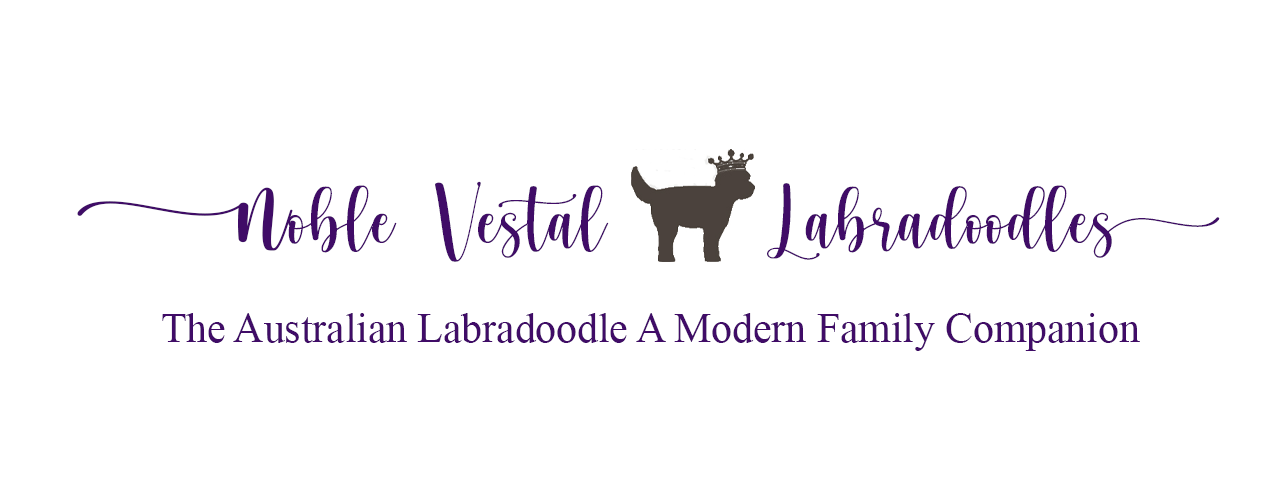
The Australian Labradoodle
